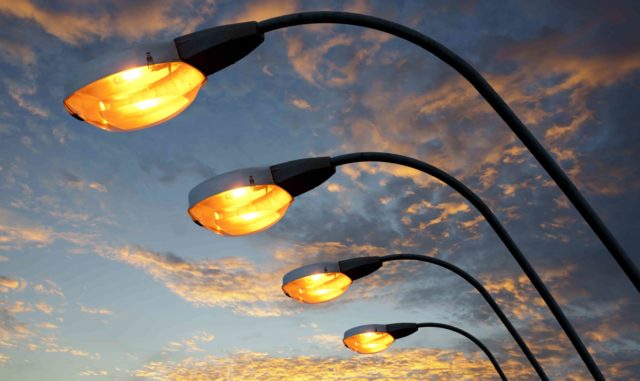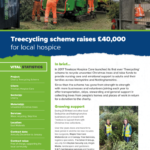Pioneering new ways of working with Balfour Beatty Living Places & Reconomy

In brief
In 2017, Balfour Beatty, Living Places and its approved waste partner, Reconomy, were discussing a project to replace over 14,000 decommissioned streetlamps in Derby. They were being upgraded to LED lanterns, at an investment cost of £2.8m.
They identified the potential to move this ‘difficult to dispose of’ type of Waste Electrical and Electronic Equipment (WEEE) waste further up the waste hierarchy, reducing its environmental impact and the energy consumption required for disposal. As a preferred supplier Ward were invited to get involved with the innovative scheme.
Empowering prison programme
Balfour Beatty’s Supply Chain Manager approached Derby’s HM Prison Foston Hall about giving women in custody at the category A prison the opportunity to be trained in how to deconstruct the streetlamps.
This would allow the lamps to be fully recycled, give inmates a wage and provide them with invaluable work experience to help them into employment upon release.
Reconomy managed all logistics directly through Ward, which included collection and transportation of the decommissioned lamps to Foston Hall and oversaw the set-up of the prison’s onsite segregation system to enable 100% recycling.
Perfect partnership
As a preferred supplier, Ward Recycling agreed to pay the labour costs of prisoners working on the project and contributed its expertise to the meticulous planning of transporting the streetlamps in and out of the prison. Fortunately, the partnership was able to rely on our expertise, as Ward held the contract with Foston Hall for general waste disposal, so could give guidance on appropriate containers and was already familiar with the prison’s strict security protocols.
New LED life for streetlamps
The initial project between Balfour Beatty Living Places, Reconomy, Ward Recycling and HM Prison Foston Hall ran until January 2019, replacing 14,293 streetlamps and achieving 100% recycling with no landfill requirements. It also provided social value benefits, helping to rehabilitate pre-release prisoners by giving them new skills, confidence and improved self-esteem.
The project was a finalist in the Construction News – Supplier of the Year awards in 2020 and Foston Hall has subsequently committed to recycling an additional 35,000 streetlamps being replaced with LED lanterns across Sunderland and around Tyneside. The same supply chain partners will work together ensuring the partnership continues.
No wasted opportunities
During the initial 16-month project, 158 waste movements were completed, with 113.43 tonnes of waste being processed. During this time, 100% recycling was achieved with no residual waste being sent to landfill.
Once dismantled, the mixed elements were recycled for various uses, reducing the need for virgin materials across several sectors:
Plastics:
Materials were recycled for the automotive industry and turned into wheelie bins for the clinical/medical industries.
Polycarbonate glass:
Subjected to granulation for use by the automotive and aerospace industries*.
Aluminium and copper:
Repurposed for use within the automotive industry and recycled into domestic copper cable.
Light iron and steel:
Non-ferrous and ferrous metals, general waste.
* For health, safety and security reasons, all glass was segregated at a Balfour Beatty Living Places depot and not taken into the prison.
Through the adoption of an innovative approach to waste disposal, the project is estimated to have saved £50,000 in procurement and waste disposal costs. The newly installed LED lamps have also produced a significant cost saving for Derby City Council, reducing energy consumption by 80% compared with the old-style lamps, producing a saving of £307,000 a year.
“By pioneering new ways of working, the project has brought about tangible waste management cost savings, minimised the environmental impact of a ‘difficult’ waste stream and generated wider community benefits through social value. By providing prisoners with employment opportunities this reduces the likelihood of them reoffending upon release. It has also established a framework that has the potential to be replicated all over the UK.”
Will Hodgson, Business Development Manager, WARD
Delivering social value
Using the Social Value Portal National TOMs framework, the estimated, ongoing social value of the partnership is £34,262 per annum based on the training of circa 50 people per year, with two people placed into waste-related jobs per year. Using the social value output of this project against Balfour Beatty’s £12.4m pipeline of work over the next three years, there is an opportunity to deliver £151,731 of social value nationwide.

